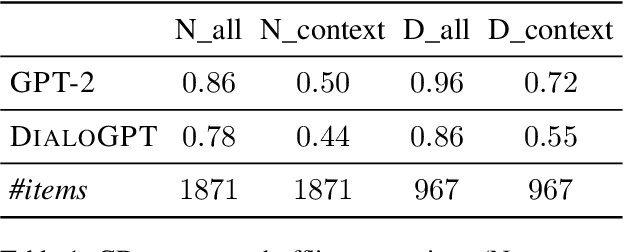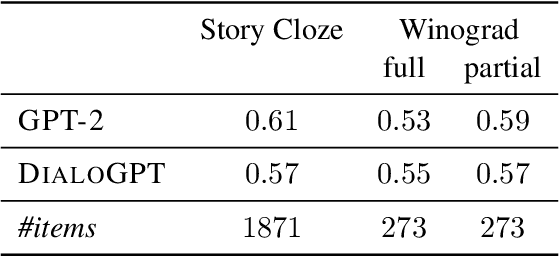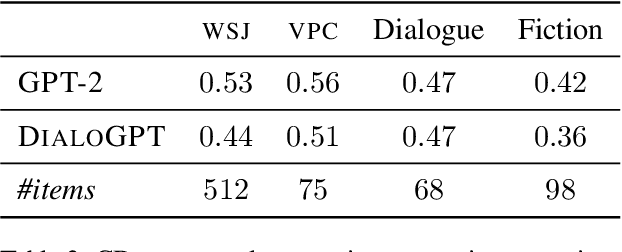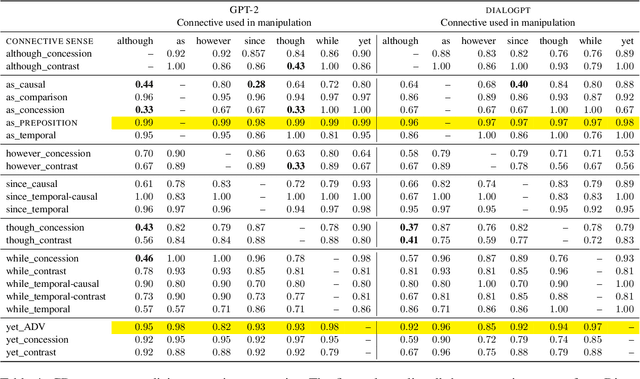Is Incoherence Surprising? Targeted Evaluation of Coherence Prediction from Language Models
Paper and Code
May 07, 2021



Coherent discourse is distinguished from a mere collection of utterances by the satisfaction of a diverse set of constraints, for example choice of expression, logical relation between denoted events, and implicit compatibility with world-knowledge. Do neural language models encode such constraints? We design an extendable set of test suites addressing different aspects of discourse and dialogue coherence. Unlike most previous coherence evaluation studies, we address specific linguistic devices beyond sentence order perturbations, allowing for a more fine-grained analysis of what constitutes coherence and what neural models trained on a language modelling objective do encode. Extending the targeted evaluation paradigm for neural language models (Marvin and Linzen, 2018) to phenomena beyond syntax, we show that this paradigm is equally suited to evaluate linguistic qualities that contribute to the notion of coherence.
 Add to Chrome
Add to Chrome Add to Firefox
Add to Firefox Add to Edge
Add to Edge